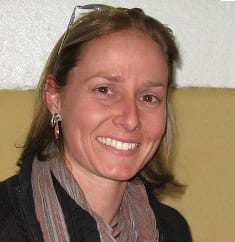Compelling Research on Disabilities in Ancient Cultures

A new article in Science Magazine includes a UCF anthropology professor’s research into attitudes ancient civilizations had toward people with conditions like dwarfism and cleft palates.
The article reports on research presented at the first Workshop on Ancient Rare Diseases, which was hosted in Berlin, Germany. Overwhelmingly, scientists challenged the conventional view that people with disabilities were treated as outcasts or left to fend for themselves. Multiple cases proved the opposite, including Egyptian royal tombs dating back 4,900 years holding the remains of two dwarfs.
J. Marla Toyne, Ph.D., a physical anthropologist at UCF, presented the example of a partially preserved mummy buried around 1200 C.E. by the Chachapoya people in northern Peru. The man’s body showed signs of a collapsed spine and bone loss, both likely caused by late-stage adult T-cell leukemia. This would have led to pain in his joints and limited mobility in a mountainous landscape. Regardless, this man was buried in a prime cliffside tomb.
“We begin with the individual, but they never live alone,” Toyne told Science Magazine. “The community was aware of his suffering. And they most likely had to make some accommodations for his care and treatment.”
Toyne’s research focuses on human skeletal remains and burials primarily in Andean South America. Her anthropological interests include: the biocultural identification of violence and warfare; ritual activities; ethnic identity; and mortuary complexity in ancient civilizations.
Click here to read the full Science Magazine article.
